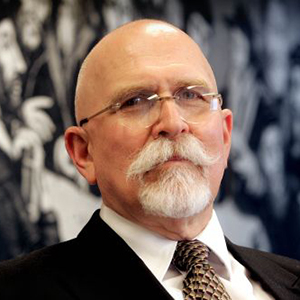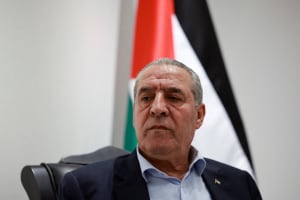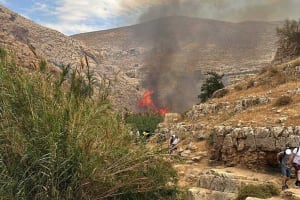Hezbollah’s fall means an opportunity for a turning point in Lebanon and Iran’s regional influence

The death of Hezbollah Secretary-General Sayyed Hassan Nasrallah sent shockwaves throughout the world. In Syria, some gathered in the streets to celebrate. For many Iranians, frustrated over the billions used by the Iranian regime to fund Hezbollah, Nasrallah's death and the substantial erosion of Hezbollah’s military strength gave rise to hope the regime will rethink its priorities and change course.
Following Israel’s peace agreements with Egypt and Jordan and the state of the Syrian army following the civil war waged in that country, Hezbollah was viewed as a primary threat to the Jewish State. The blows Israel is dealing Hezbollah, climaxing with the assassination of Hassan Nasrallah, may well constitute an opportunity to reshape the Middle East and to show Iran for what it is until it obtains military nuclear capabilities: a paper tiger.
Iran invested billions of Dollars in Hezbollah, training and equipping the group with missiles, rockets and drones until it became a military force many times larger, better equipped and better trained than the Lebanese army, equivalent to a midsize national power. Hezbollah's military might enable the group to solidify its social and political control of Lebanon and spread its tentacles around the world. Hezbollah established a political party that now represents the Shi'ites in the parliament, has two ministers in the cabinet and is the most powerful force in Lebanon. It established well-run schools, hospitals and a social security system that primarily served the Shi’ite community. To a large extent, it operated like a State within a State, with a de facto government. Its Executive Council was responsible for the group’s civilian and budgetary affairs, propaganda, judicial affairs and domestic and foreign relations. The military arm controlled the group’s international drug smuggling activities. Its terror cells and its open military force functioned as an army, with uniforms, unit flags, ceremonies and the like.
The demise of Hezbollah’s Nasrallah and of Hezbollah’s main military leaders creates an opportunity for Lebanon to reassert its independence from Iran and to forge a future for itself. Once the Singapore of the Middle East, it is now a bitterly divided country with a floundering economy and a growing poverty rate. Hezbollah still holds sway over large sections of Lebanon’s civilian and economic infrastructure and, at least in theory, the political power to determine Lebanon's future. It remains to be seen if the people will force the group to make way for a happier national future.
Over a million people were forced to leave their homes in the south and the Dahiya sector of Beirut. Hezbollah's social and health services, strained to the limit, can no longer meet the needs of the homeless and the wounded. This has provided the Government of Lebanon with an opportunity to step into the void and provide such services, while Israel continues to block Iran’s efforts to rearm Hezbollah by attacking supply convoys and preventing Iranian planes from landing in Beirut.
In the past, the Lebanese drove the Syrian forces out of the country, which still has something of a defunct national structure that is capable of being revived. Clearly, Iran and Hezbollah have not served the interests of the country well.
Israel continues to attack Hams and Hezbollah interests in Lebanon. On Sunday night, in the first attack on another sector of Beirut, Israel killed Fateh Sherif, the head of the Lebanon branch of Hamas, responsible for coordination with Hezbollah. It should be noted that he was also an accredited UNRWA member, the head of the UNRWA Teachers Union in Lebanon. Another terrorist group, the Popular Front for the Liberation of Palestine, said three of its leaders were killed at the same time in an airstrike that hit the upper floor of an apartment building in Beirut. The Israeli air force destroyed ground-to-air missiles Hezbollah stored but a mile from the Beirut airport and is monitoring the escape of lower-rank Hezbollah commanders to Hezbollah bases in Syria by way of tunnels dug at the border between the two countries.
Iran
Iran, caught on the horns of a dilemma, is now facing the repercussions of Israel’s successful war with Hamas and Hezbollah, and of its forceful response to Houthi attacks which left the latter dependent on the goodwill of their mortal enemies in the east of Yemen or to its north: its ports now destroyed, supplies can only come by land, through Saudi Arabia or Yemen proper. Hezbollah was Iran’s premier proxy, meant to help defend Iran should Israel attack its nuclear facilities. As such, Hezbollah was crucial to Iran’s regional influence and strategic to its security.
Iran has proxy militias in Iraq and Syria. If it does not respond with force, as it promised, to the assassination of Hama’s Ismail Haniyeh on Iranian soil and to Israel’s actions against Hamas, Hezbollah and the Houthis, it may well lose the trust and the support of those militia’s. If it does respond with force, it may well suffer consequences similar to those inflicted on Hamas, Hezbollah and the Houthis. Israel’s response to Houthi missiles – its attack on their only ports and on their oil industry, the main source of their income – demonstrates Israel’s likely response to an attack from Iran, regardless of whether it is a direct attack or otherwise: The Iranian oil industry provides some 60% of the country’s income and is highly vulnerable. Iran does not have an air force to speak of and its air defenses are not only sparse but proved ineffective against Israel’s competent air force. The abject failure of Iran’s April 14 attack and the cooperation of Arab countries bordering on Iran and Israel have further weakened Iran’s military confidence.
The Iranian people are restive, the regime is widely unpopular. In the election held in March of this year, a mere 41% of eligible voters are known to have participated (unofficial reports speak of less than 15%). Parliamentary elections in May saw a turnout of 7-8%, marking the lowest participation in the history of the Islamic Republic. Druze, Sunni and other minorities are ready to pounce on any opportunity to throw off the regime’s grip, and the economy is in dire straits due to international sanctions and to the regime prioritizing its military, the development of nuclear capabilities and funding Hezbollah, the Houthis, other proxies and international terrorism over economic development or social services to the Iranian people.
Iranian national debt reached 30% of GDP and, over the last two years, the currency lost 80% of its value. Inflation stands at 49.5% and unemployment is nearing 10%, most of whom are educated young people. The government borrowed billions of dollars in local currency from the central bank, creating economic imbalances likely to lead to hyperinflation. The government spent $140 billion of its $150 billion National Development Fund and over the next few years must allocate an additional $100-150 billion per annum to prevent the total collapse of the system while its energy and water resources are dwindling.
With the election of Iran’s new President, Iran has embarked on an international effort to ease tensions with the West and have the sanctions lifted. If it undertakes a campaign against Israel, its charm offensive is sure to fail.
The US and the West
While welcoming the demise of Nasrallah, President Biden has taken care to distance his administration from the attack and insisted, as they have repeatedly done with regard to Hamas, “Now is the time for a ceasefire”. Countries in the West have echoed that sentiment. If a ceasefire is imposed on Israel, it will enable the remnants of Hezbollah to regroup, take renewed control of Lebanon, confirm the validity of Iran’s aggressive policies and enable the renewal of its threat to Israel. Why call for a ceasefire? Is it not more effective to conduct negotiations for Hezbollah’s disarmament and its removal from Israel’s northern border while it experiences the kind of pressure a ceasefire would eliminate?
The West, including the U.S., has done nothing to bring an end to the Houthi’s attacks on international shipping, nor even on their own warships (!). The Houthis are a small, underdeveloped, largely uneducated and impoverished body of people that would be of no consequence were it not for the West’s hesitant response to their provocations. They can easily be put in their place. America’s “don’t!” carries little weight with Iran or anyone else in light of its reticent response to Houthi attacks. Arab and countries in the Far East are now rethinking their reliance on US and Western support while China looms high on the horizon – and they do well to do so.
Copyright Baruch Maoz. Reposted with permission.
www.themaozweb.com

Baruch Maoz served for thirty-three years as pastor of Grace and Truth Christian Congregation near Tel Aviv and field leader for Christian Witness to Israel. He is senior editor of the Modern Hebrew Bible, coeditor of the Annotated Hebrew New Testament, and founder and former co-editor of Mishkan: An International Theological Forum on Jewish Evangelism.














